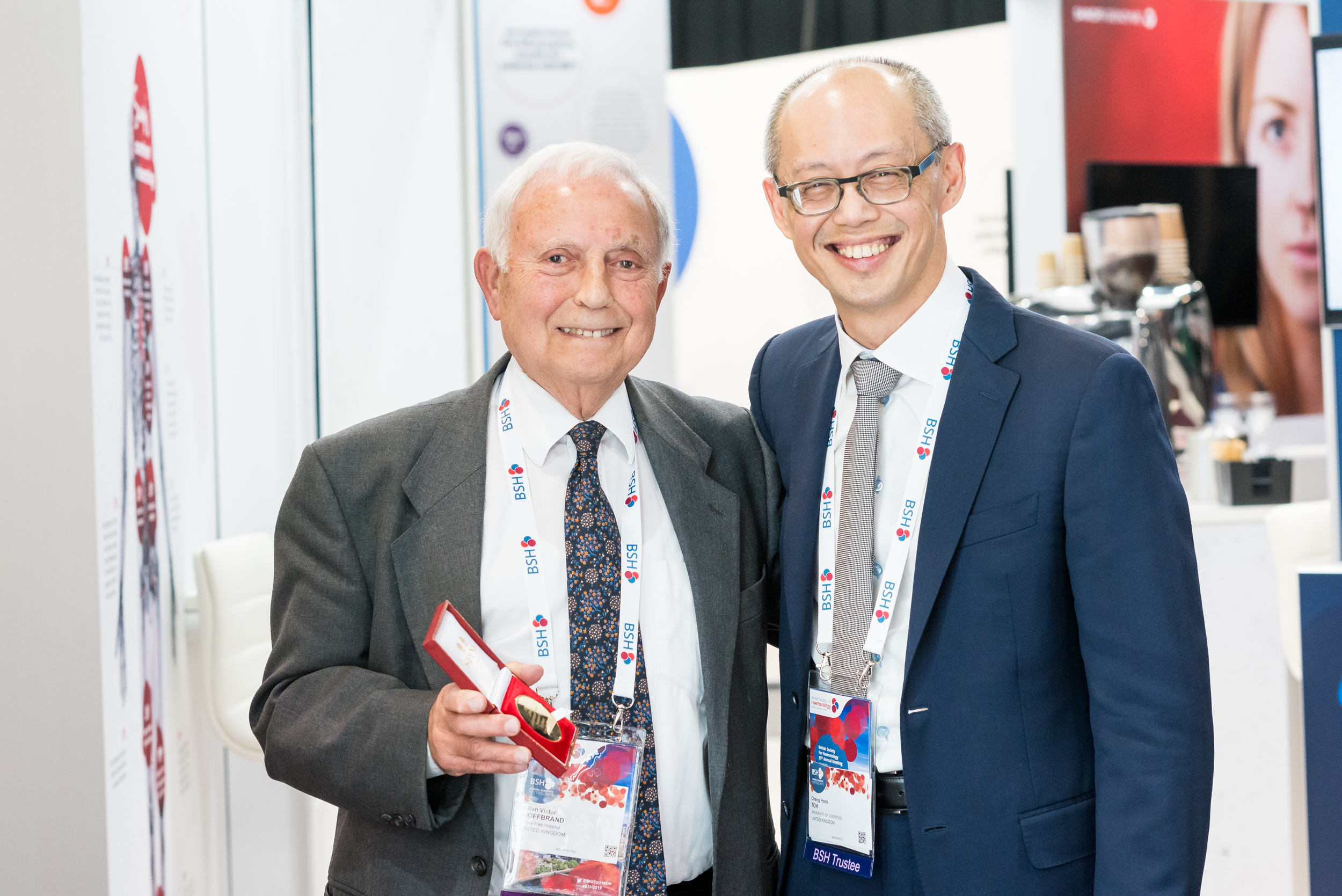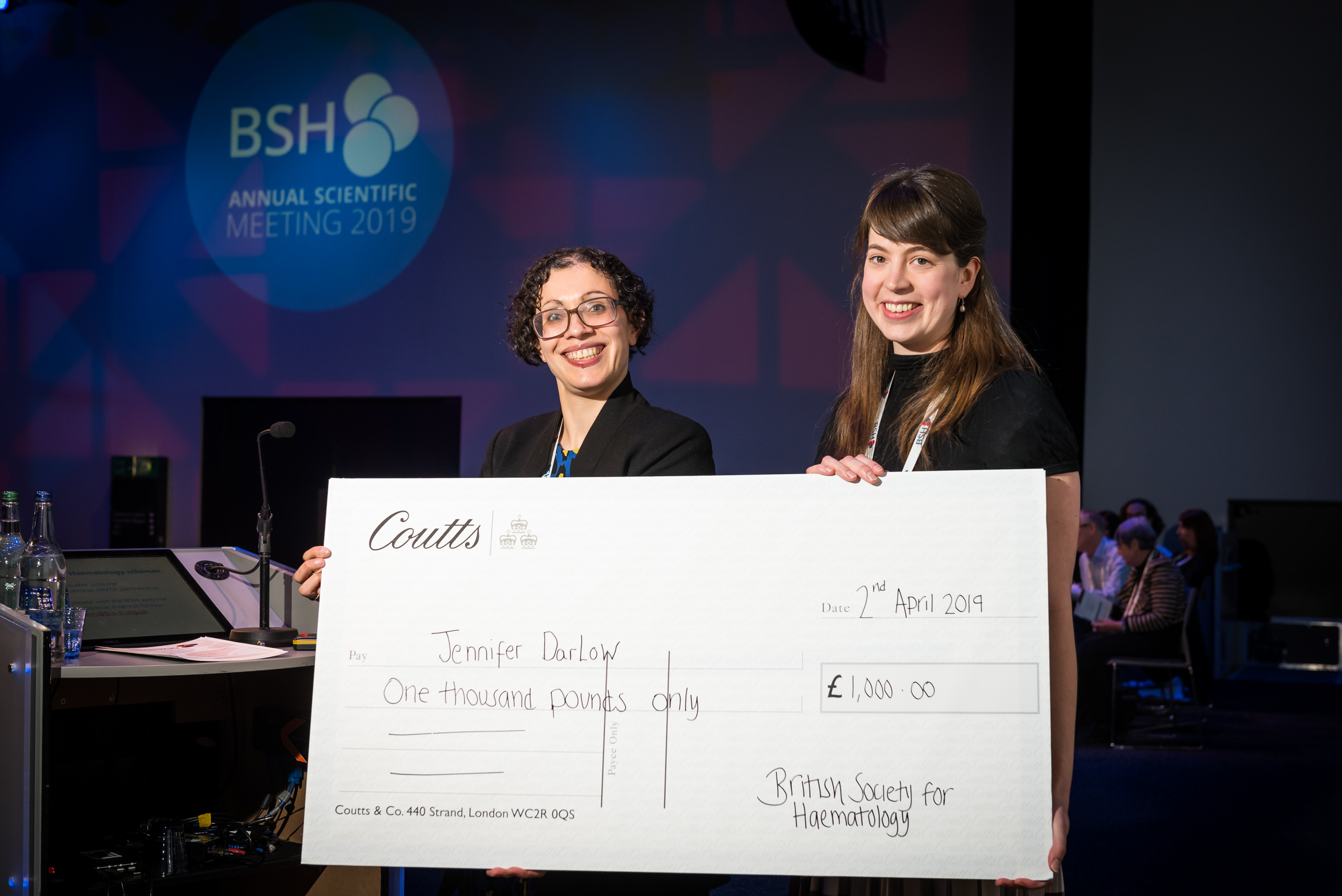At the BSH, we are keen to recognise those who go above and beyond and excel in their chosen area of haematology.
We deliver a number of prizes and awards scheme throughout the year to celebrate the success of the haematology community, and share external awards.
It is important that everyone, from students to senior haematology professionals, can showcase and gain recognition for their work.
Sign up for our Grants and Awards Newsletter on your My BSH page to receive notifications when awards are updated or announced.

The BSH Lifetime Achievement Award honours and recognises outstanding individuals who have made a major contribution to haematology in the UK (though the candidate does not have to be British).
Award criteria:
- The award is for exceptional contribution to UK and international haematology.
- Nominees can be from any discipline – scientist, nurse, medic, BMS, etc.
- Nominees do not need to have been a BSH member or UK citizen.
- The nominee should have spent the majority of their career in the UK.
- The award is not intended to be for academic work alone.
- The nominee should be in the latter part of their career or retired.
- The nominee cannot be a current trustee or an office bearer for the previous three years.
- It cannot be awarded posthumously.
Other information:
- The award will not necessarily be awarded annually.
- The award will be made at the BSH Annual Scientific Meeting.
Nominations for the 2026 award are now closed.
For full guidance on the application process, view our information pack.
To submit your nomination, please download a nomination form and return it to
[email protected].

The BSH Crucible Prize is an innovative trainee-led initiative with a £1,000 prize, where the five top abstracts are selected for oral presentation at our Annual Scientific Meeting.
The Prize aims to encourage reflection on what haematologists do and why they do it.
Those selected are questioned and judged by a panel of senior haematologists on the quality and originality of their content, presentation skills and response to questions.
The Prize is open to doctors in training, nurses and other healthcare professionals (at any stage of their career).

We invite undergraduate medical, biomedical and clinical science, physician associate and nursing students from UK schools to create a presentation on a subject chosen by the Education Committee.
The winner will receive a prize of £500, and the runner-up will receive £250.
The topic for the 2026 prize is:
"In an era of increasing population diversity and technological advancement, how should we rethink the concept of ‘normal’ in haematological reference ranges—and what are the implications for diagnosis, communication, and care?"
This competition was formally the Student Essay Prize

These are exciting awards created by the BSH Early Career Forum. Each award has a prize value of £1,500, plus expenses to attend the 2025 BSH Annual Scientific Meeting.
These two awards will be for projects or ideas in service improvement, leadership, and workforce rearrangement. Applicants are encouraged to think broadly and innovatively.
The prizes aim to foster professional development in students and people early in their careers and encourage reflection on how everyone can contribute to improvements in healthcare regardless of career stage.
The submission should relate to, or have the main focus on, haematology.
Eligibility:
This award is open to BSH members and non-members.
For the Undergraduate Achievement Award:
This prize is open to all healthcare students completing an undergraduate degree in their field.
For the Early Careers Achievement Award:
This prize is open to doctors in training, nurses and other healthcare professionals, a maximum of four years post-qualification.
Application process and timeline:
Submissions for the 2027 award will open in November 2026.
External awards
HaemSTAR is an independent UK-wide network of registrars in clinical haematology who are interested in promoting and performing research in medical haematology.
Our focus is on collaborative projects across medical haematology. This includes, among many things, haemostasis, thrombosis, immunohaematology, transfusion, general haematology and obstetric haematology.
HaemSTAR has been awarded the ISTH London 2022 Legacy Fund. Part of the fund will be directed to support trainees and allied health professionals to attend educational events, meetings, conferences or any other professional development opportunity that enhances their knowledge, connections and skills.
Applications are reviewed on a quarterly basis, and applicants will be notified by email by Mid-October, Mid-February, Mid-April and Mid-July as to whether or not they have been selected for an award.
See the Application review process and ISTH Legacy Fund application form for further details of eligibility and how to apply. You must be a HaemSTAR member to apply. You can join by signing up to the mailing list.
Maximum amount: £1,000 for national (UK) events, £3,000 for international events.

